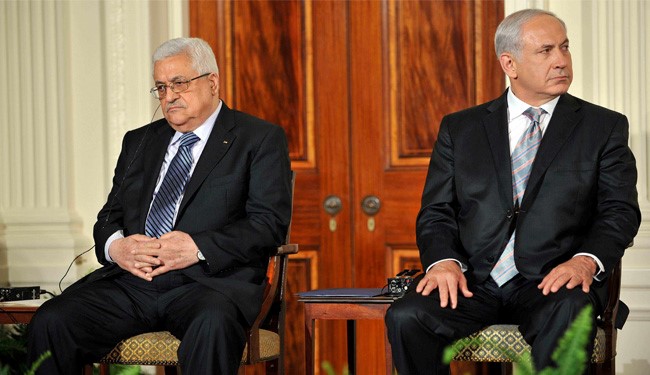As the Reconstruction era of American history came to a close in the late 19th century and unrest stirred quietly in Europe, a different sort of conflict began to materialize in the West Bank of Palestine. Theodor Herzl, a Jewish journalist armed with an unprecedented sense of urgency and a Biblical sense of duty, became the leader of the modern Zionist movement, which aimed to establish a homeland for displaced Jews around the world.
The idea was not, however, met with unanimous agreement, and all existing Arab states quickly opposed Herzl’s proposals. His actions catalyzed significant progress towards Zionist goals, as well as, however, the genesis of the Arab-Israeli conflict. Although official government-sponsored war has been relatively subdued in the region following the 1973 Yom Kippur War, brutal tension still exists between Jews and Muslims in the area to a great extent, making fundamental governance almost unattainable. The state of Israel, founded in 1948, is increasingly in danger of violent terror attacks, particularly with the rise of Arab militant groups such as al-Qaeda and ISIL. Countless intermediaries and diplomats have sought to ease tensions between Israel and Palestine over the course of the past few decades, but the nations remain in a deadly stalemate.
So, to explain this stalemate in the search for a diplomatic solution, researchers often apply political game theory, particularly a situation known as the Prisoners’ Dilemma, in order to statistically analyze a complex, real-world situation. In the Prisoners’ Dilemma, two “players” are engaged in some form of conflicting interests, with the option to either cooperate or defect. If both cooperate, they share a mutual reward; likewise, if both defect, they share a mutual punishment. If one cooperates while the other defects, however, then the defector receives a “temptation” reward, while the cooperator receives the “suckers” punishment. It’s fair to assume that the temptation reward is far greater than the mutual reward, and the suckers’ punishment is far worse than the mutual punishment.
Practically speaking, Israel and the Arab states, as well as occupied territories of Palestine, that oppose its existence (henceforth referred to as “Palestine”) are both “players” in a large-scale, violent, politicized version of the Prisoners’ Dilemma. We can assume in context that “cooperating” is the agreement to establish a Jewish homeland, and “defecting” is any measure taken to oppose it.
For Israel, cooperating comes at the cost of several stipulations from Palestine. For one, the Palestinian National Authority, led by President Mahmoud Abbas, wants to restore the border that was established in 1967 following the conclusion of the Six-Day War, leaving Israel much smaller than it is now. Additionally, the Palestinian government requests the release of all Palestinian prisoners currently serving time in Israeli prisons, including those convicted of acts of terror. On top of all this, by choosing to cooperate, Israel leaves itself vulnerable to receiving the suckers’ punishment from Palestine should that country choose to defect. In such a case, Israel would lose several hundred square miles of land, have a heightened security threat due to the release of convicted terrorists, and still not be guaranteed the permanent Jewish homeland that they wanted in the first place.
The situation is also challenging for Palestine, which was given an equally robust list of demands by Israel. The first and most important is the permanent recognition of Israel as a Jewish state, ending any formal conflict between the two players and forfeiting any claim to land formerly inhabited by Palestinians. Israeli President Benjamin Netanyahu has also requested the demilitarization of Palestine, meaning that the state would no longer be able to patrol its borders with military force, or have absolute control over its airspace. Geographically, the president’s demands also warrant the restoration of Israeli control over significant blocs of the Western Bank, a controversial patch of land along the western coast of the Mediterranean Sea. Sacrificing all of these things still leaves the interim Palestinian government susceptible to Israel’s defection, meaning they lose all of the aforementioned advantages and receive nothing in return from Netanyahu’s administration.
The easy solution would be for both players to cooperate fully and share the mutual reward of long-awaited peace, something not seen in the region for several centuries. Unfortunately, both Israel and Palestine have chosen to defect, and both nation’s citizens continue to share the mutual punishment. Over 22,000 Arabs have died in the conflict, and in Palestine, where most of the conflict’s violent displays take place, that number is almost quadrupled. Palestinians continue to have their ancestral lands encroached upon by Israeli settlers, while Israelis continue to live with the risk of Palestinian suicide attacks and other violence.
From the First Arab-Israeli War of 1948, to the 1982 Lebanon War, to attacks from militant groups such as Hamas that have taken place as recently as 2014, both nations now face unnecessary consequences as a result of their inability to compromise.
In Israel, Palestinians are essentially bullied by their U.S. military-backed Israeli counterparts. Prime Minister Netanyahu’s administration has routinely enforced roadblocks and checkpoints designed to restrict Palestinians’ ability to move freely about the country. This affects nearly everyone, from students trying to make it to school to the sick and injured seeking medical attention.
These policies adversely affect the Jewish population of Israel, particularly in the West Bank, by opening the door to Palestinian retaliation and putting innocent lives at stake. Since early October of 2016, over 120 attacks have taken place directly targeted at Israelis, a continuing phenomenon defined by President Abbas as a “justified popular uprising.”
Since he assumed the position in 2009, Prime Minister Netanyahu has consistently spread anti-Palestine rhetoric throughout the world, even suggesting that Palestinians be held responsible for the extermination of Jews during the Holocaust. Under his administration, Israeli’s internal security agency, the Shin Bet, has been caught spying on and even physically intimidating Palestinian citizens in Israel as well as peaceful protestors.
Although Palestine is often the victim of Israeli aggression, the nation-state’s response has been an equally-destructive barrier to peace in the region. Following the election of Hamas, a Sunni fundamentalist political faction, to a majority of seats in the Palestinian legislature in 2006, it quickly became clear which route the Palestinian people wanted to take in ending the Arab-Israeli conflict. The group’s long-term vision for the region has been described as “indistinguishable from those of Islamic State and al-Qaeda.”
Countless formal attempts at peace between the two, from United Nations Resolution 242 of 1967 to the Camp David Summit of 2000, have unraveled shortly after implementation.
For Israel, their right to a Jewish homeland has been promised to them in the Holy Bible and cemented by their historic ties to the area. It is also believed by many Christian Zionists to be a prerequisite to the Second Coming of Jesus, which is one way the movement has been adopted by religions other than Judaism.
For Palestine, the permanent creation of a Jewish state has countless long-term implications. The immediate loss of land, for one, is enough to keep President Abbas and his Prime Minister, Rami Hamdallah, away from the negotiating table. Sacrificing land along the Mediterranean would have severe consequences for the nation’s economy, as well as negative strategic impacts from a foreign policy standpoint given the region’s history of conflict. Most importantly, however, is the fact that Palestinians claim an equal Biblical birthright to the region much like that of Israel’s, which was reinforced after the First World War by the British Mandatory Authority, a complicated geopolitical entity formed by a fragile British-Arab partnership.
While the future may still look bleak for Israel and Palestine, evaluating the conflict through the perspective of each player is the first step in finding a solution, and the only way to create lasting peace in the Middle East.


